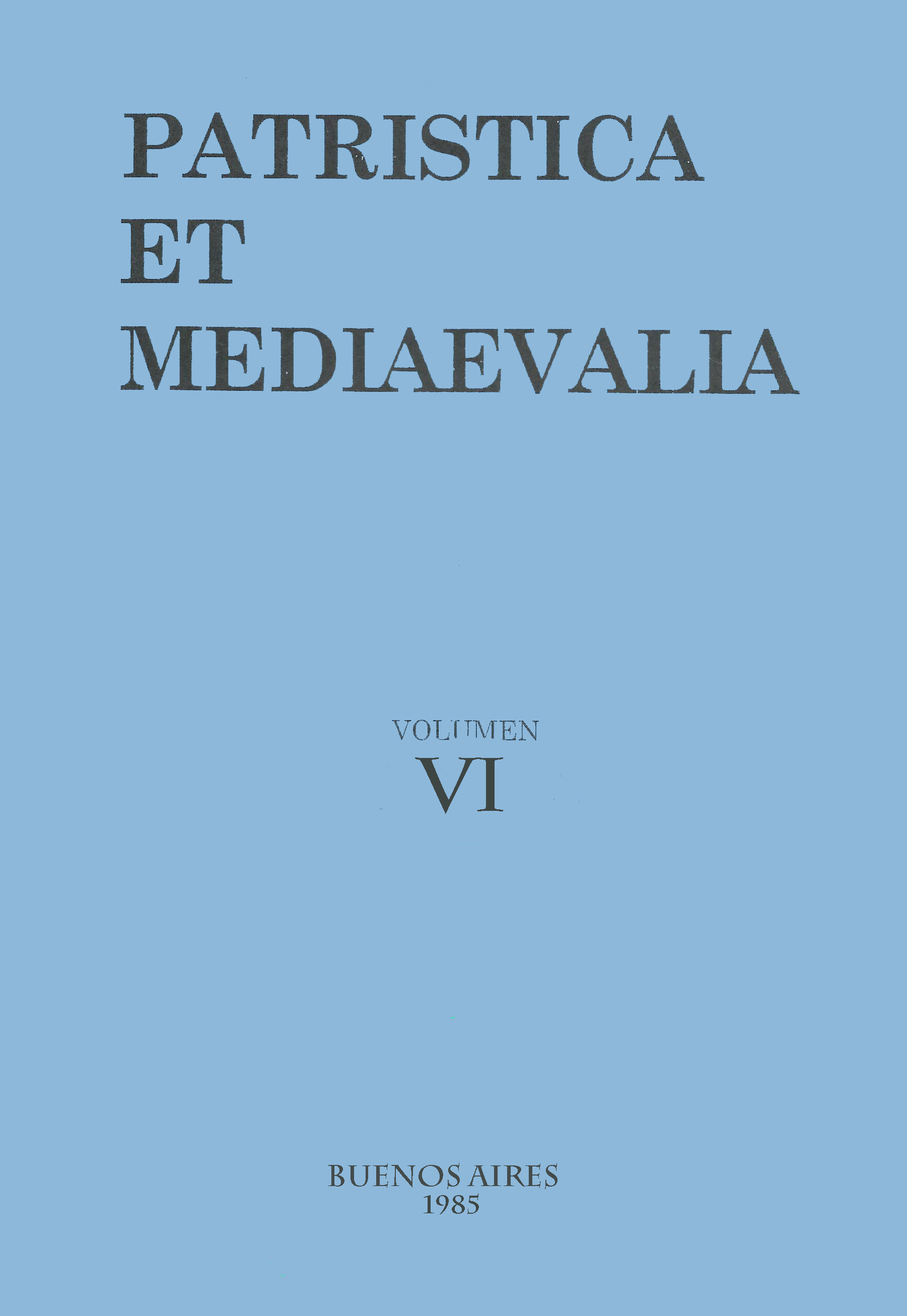Realities that surpass all Intelligence. Notes on the First Chapter of the Vox spiritualis of Eriugena (II part)
Abstract
This second and last part that deals with the Chapter I of John Scotus’ Vox spiritualis rejects the correction of F. Ravaisson, who reported the words “cum post deum sint … nonexcedant” as “things which are”. We do so by comparing this Homily with two parallel texts from the Peryphyseon, which allows us to re-examine the order in which I, 8-12 should be read. Then, in second place, we present a classification of the principal propositions of John Scotus concerning the phrase: “quae sunt et quae non sunt”. These propositions are compared with similar statements in the Ad Candidum of Marius Victorinus, an important and understudied source of Eriugena’s thought. We then consider lines I, 14-16, focusing on the identification of “things which are not” with the primordial causes and on the meaning of the verb “superuehitur”. The conclusion of the article highlights the interest of a quotation from Nicholas of Cues for the establishment of the text of the Vox spiritualis. An Appendix Note points out the presence, not yet noted, of a fragment of the Homily among the glosses of the manuscript of the Adversus Arium, and suggests the probability of an influence of Victorinus on the Trinitarian terminology of John Scotus. (To see the first part: vol. 4/5 (1983-1984)]Downloads
1. The authors who publish in this magazine accept the following conditions:
-
They retain the copyright and grant to the magazine the right of the first publication, with the work registered under the Attribution-ShareAlike 4.0 International License that allows third parties to use what is published as long as they mention the authorship of the work and the first publication in this magazine.
-
They can make other independent and additional contractual agreements for the non-exclusive distribution of the version of the article published in this magazine (eg. include it in an institutional repository or publish it in a book) provided that they clearly indicate that the work was first published in this journal.
-
They are allowed and recommended to publish their work on the Internet (for example on institutional or personal pages).
2. AutoArchive Conditions. Authors are allowed and encouraged to distribute post-print electronic versions of their manuscripts because it promotes their circulation, a possible increase of quotation and a major reach among the Academic community. Color RoMEO: blue.













